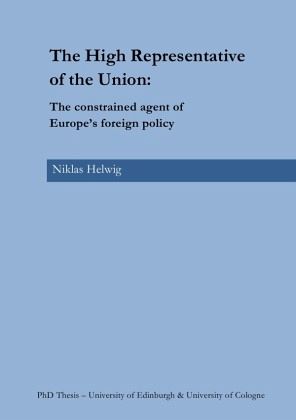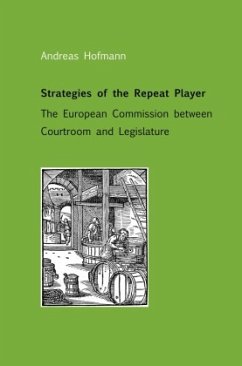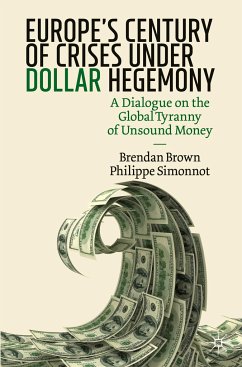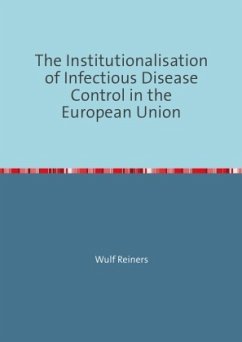
The High Representative of the Union: The constrained agent of Europe's foreign policy
Dissertationsschrift
Versandkostenfrei!
Versandfertig in 6-10 Tagen
24,99 €
inkl. MwSt.

PAYBACK Punkte
0 °P sammeln!
The 2009 Lisbon Treaty reform created the remodeled version of the High Representative of the Union as a potentially powerful agent to represent and coordinate Europe's foreign policy. However, this book shows how and why the EU member states granted only limited discretion to the new foreign policy actor during the first years of the post's existence. This study argues that the EU foreign policy chief is the constrained agent of Europe's foreign policy. The book comprises an in-depth analysis of the history of the post of EU High Representative, the setting-up of the European External Action ...
The 2009 Lisbon Treaty reform created the remodeled version of the High Representative of the Union as a potentially powerful agent to represent and coordinate Europe's foreign policy. However, this book shows how and why the EU member states granted only limited discretion to the new foreign policy actor during the first years of the post's existence. This study argues that the EU foreign policy chief is the constrained agent of Europe's foreign policy. The book comprises an in-depth analysis of the history of the post of EU High Representative, the setting-up of the European External Action Service (EEAS), the tenure of Baroness Catherine Ashton as the first incumbent of the office, and of the 2013 review of the EEAS.The aim of the book is to reveal the conditions of discretion of the EU High Representative. With the use of a principal-agent (PA) approach, the book shows that conflicting preferences of the member states, tight control mechanisms, as well as inadequate cooperation with the European Commission limited the High Representative's room for manoeuvre. It is suggested that the post of High Representative has the potential to emancipate from its status of a constrained agent over time, and to gain credibility as a foreign policy actor.The findings suggest that the PA approach can be developed further in the future in order to better explain limited discretion of agents in matters of foreign policy. Based on the findings, the study also puts forward a number of characteristics of a 'constrained agent'.












